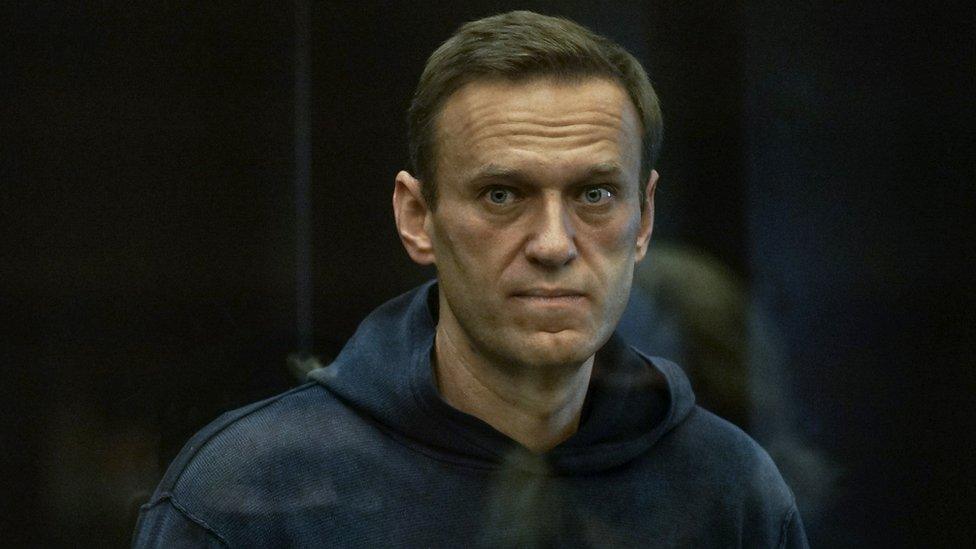Alexei Navalny: Top Putin critic sent to Russian penal colony
- Published
Alexei Navalny: what you need to know
Russian opposition leader Alexei Navalny has been sent from detention in Moscow to a penal colony to serve out a sentence for embezzlement.
The 2014 suspended sentence was turned into an actual prison term of two and half years after he returned from Germany, where he had received medical treatment for nerve agent poisoning.
The conviction was widely seen as politically motivated.
Navalny is the most ferocious critic of President Vladimir Putin's rule.
Last summer he was poisoned in Siberia with a chemical nerve agent. An independent investigation has alleged that a hit squad of Russian security agents tried to kill him.
The Kremlin denies involvement and disputes the conclusion, by Western weapons experts, that Novichok was used.
While in a coma, he was airlifted to Germany, where he recovered. He returned to Russia in January and was arrested on arrival.
A court this month found that he had violated the terms of his probation over the embezzlement case, and imposed the prison sentence.
EU leaders condemned Navalny's treatment on Thursday and demanded his immediate release.
Meanwhile, human rights group Amnesty International, which sparked a row this week after it decided to strip Navalny of his "prisoner of conscience" status on the grounds that he had made xenophobic comments in the past, faced embarrassment after they were tricked by a prankster pretending to be Navalny's colleague.
Where is Navalny now?
Navalny's transfer was confirmed on Friday by the head of the Russian Penal Service, Alexander Kalashnikov, who did not specify which colony the prisoner had been sent to.
"I guarantee that there is no threat to his life or health," he told Russian media. "He will be kept in absolutely normal conditions."
News of the transfer had first emerged when Navalny lawyer Vadim Kobzev went to the remand prison on Thursday only to be told that his client was no longer there.
On Friday, Mr Kobzev told AFP news agency he was still unaware of Navalny's whereabouts.
Penal colonies are the most common form of prison in Russia and span the country. Typically prisoners are kept in dormitories and are expected to perform labour.
What happened with Amnesty?
Russian pranksters announced they had tricked Amnesty officials into admitting that the move to strip Navalny of his status had "done a lot of damage."
The pranksters, who are known as Vovan and Lexus, have been fooling Western politicians for years. They released a recording of a 14-minute video call with Julie Verhaar, Amnesty's acting secretary general, external, and two other directors.
One of the pranksters posed as Leonid Volkov, Navalny's right-hand man.
The real Leonid Volkov responded by tweeting, "Frankly - and I hate to say that - this Zoom call alone is, in my opinion, enough to qualify the @amnesty leadership as unfit."
Amnesty International declined to comment on the phone call, AFP reports.
In December, Navalny himself reportedly used a phone call to dupe a Russian security agent into revealing details of the nerve agent attack.
Related topics
- Published4 February 2021
